COVID-19 Awareness : Notwithstanding Looming Border Insecurity
- Par Kimeng Hilton
- 07 oct. 2022 16:30
- 0 Likes
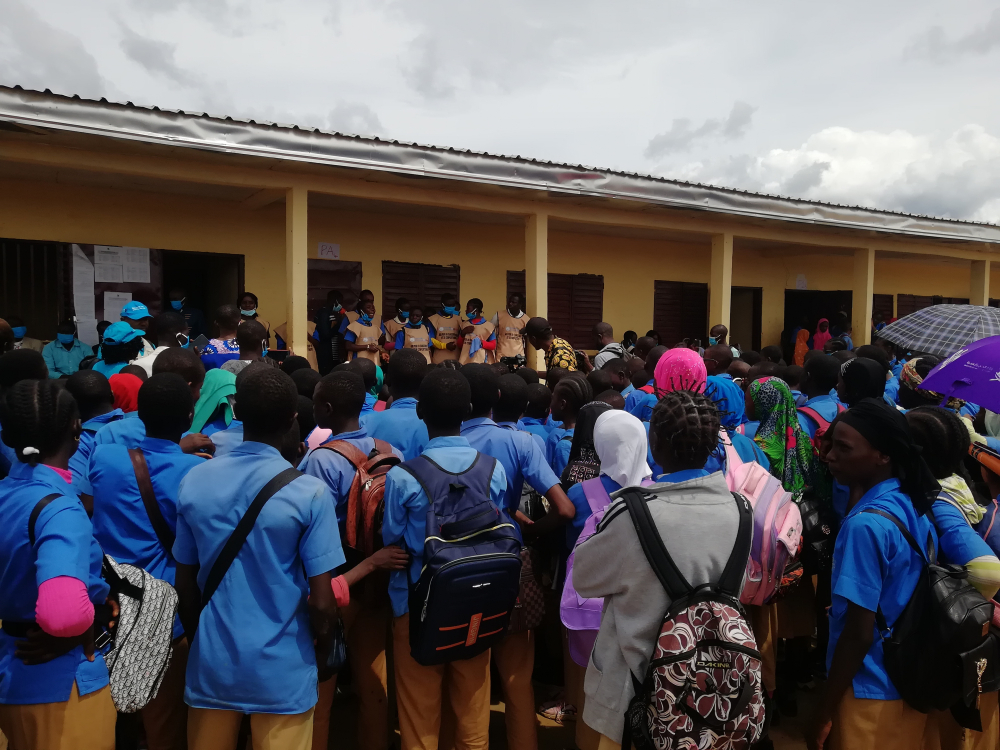
Government Bilingual High School, Garoua Boulai in Cameroon’s East Region presents a peculiar situation. Given its proximity to the frontier with the volatile Central African Republic.
As you drive in late in the morning of September 27, 2022, a strange sight immediately catches your attention. A policeman clutching an automatic rifle! On guard in front of the administrative building! This is not common in Cameroon schools, though. The reason for your curiosity to find out as soon as possible. The mission of the armed policeman on a school campus.
Next-door Insecurity Hotspot!
“Our school is located barely a few metres from the border with the Central African Republic, CAR,” says Oscar Egbe Mbeng, the Principal of Government Bilingual High School, GBHS Garoua Boulai in Lom and Djerem Division of Cameroon’s East Region. “Armed policemen are deployed on campus during classes to guard against any intrusion from across the border,” the Principal explains, pointing at some trees about 200 metres from the furthest classrooms.
Gendarme, Police Backup
“I have the phone numbers of the local gendarmerie and police commanders, in case there is need for reinforcements,” Oscar Egbe notes with a smile. Which does not conceal his great concern for the safety of the 1,225 students under his care. Including 135 from the Central African Republic, and two each from Nigeria and Chad.
As If All Were Normal!
In spite of the looming security challenges, GBHS Garoua Boulai has been receiving teams of young people - including its own students - who sensitise on Coronavirus prevention and control measures. Dr Mboa Mboke Ange, the Acting Director of Garoua Boulai District Hospital confirms the gravity of the situation: “Our hospital is located on the border between the Central African Republic and Cameroon. It covers a vast area and has the particularity that the population is so mobile as a result of displacements in CAR. The highway that runs through Garoua Boulai is the main supply route from Cameroon to CAR. This means a high level of population movements on the highway, thus the need to regularly sensitise the population against Coronavirus.”
Project Media Tour
As the team of journalists, Ministry of Communication, United Nations Children’s Fund, UNICEF officials and health staff alight from their vehicles, hundreds of expectant students begin to gather at the assembly grounds. To hear another talk on the dreaded Coronavirus or COVID-19 disease. After which Nadan Beri Marie Ange, a Form Five student tells you: “I know Coronavirus. It is a killer disease. To prevent it, we need to wash our hands regularly with soap, wear face masks and keep a distance of one metre from each other.”
Student Engagement
Her classmate, Simo Gustave, also has fairly good knowledge of Coronavirus. “I was sensitised on Coronavirus in Marche A in Bafoussam; and later in church in Garoua Boulai,” Simo recalls. “Ever since, I have been protecting myself against the disease. I also advise my younger ones to wash their hands regularly with soap under running water,” he adds.
Targeted Communication
“We reach out to young people through four channels – radio, focused group discussions, community mobilisation and mass sensitisation. Our 20 trained members have carried out door-to-door visits since three months to sensitise on Coronavirus,” explains Tembit Jude Evanny Lea, a member of Social Behaviour Change, SBC youth group of Garoua Boulai.
Created three months ago, the group, and other stakeholders, sensitise the public on COVID-19 prevention and control. As part of the 12-month “Preventing and Responding to COVID-19 in Cameroon” project. It is financed by the United States Agency for International Development, USAID, at the cost of 500,000 US dollars (about 334.5 million FCFA). It focuses on urban centres, refugee and internally-displaced communities and covers the North West, South West and East Regions. It is implemented by the Ministry of Public Health in collaboration with UNICEF.
Using the Risk Communication and Community Engagement, RCCE strategy, sensitization is carried out by women’s groups under the oversight of the Ministry of Women’s Empowerment and the Family. And youth groups under the Ministry of Social Affairs. The latt...
Cet article complet est réservé aux abonnés
Déjà abonné ? Identifiez-vous >
Accédez en illimité à Cameroon Tribune Digital à partir de 26250 FCFA
Je M'abonne1 minute suffit pour vous abonner à Cameroon Tribune Digital !
- Votre numéro spécial cameroon-tribune en version numérique
- Des encarts
- Des appels d'offres exclusives
- D'avant-première (accès 24h avant la publication)
- Des éditions consultables sur tous supports (smartphone, tablettes, PC)






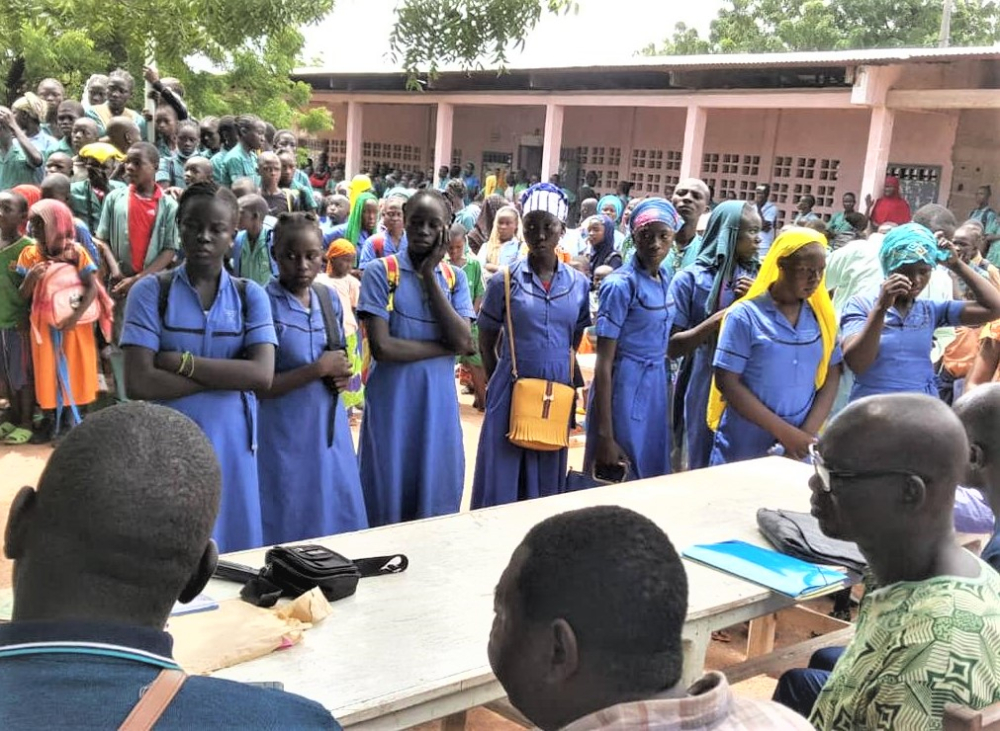

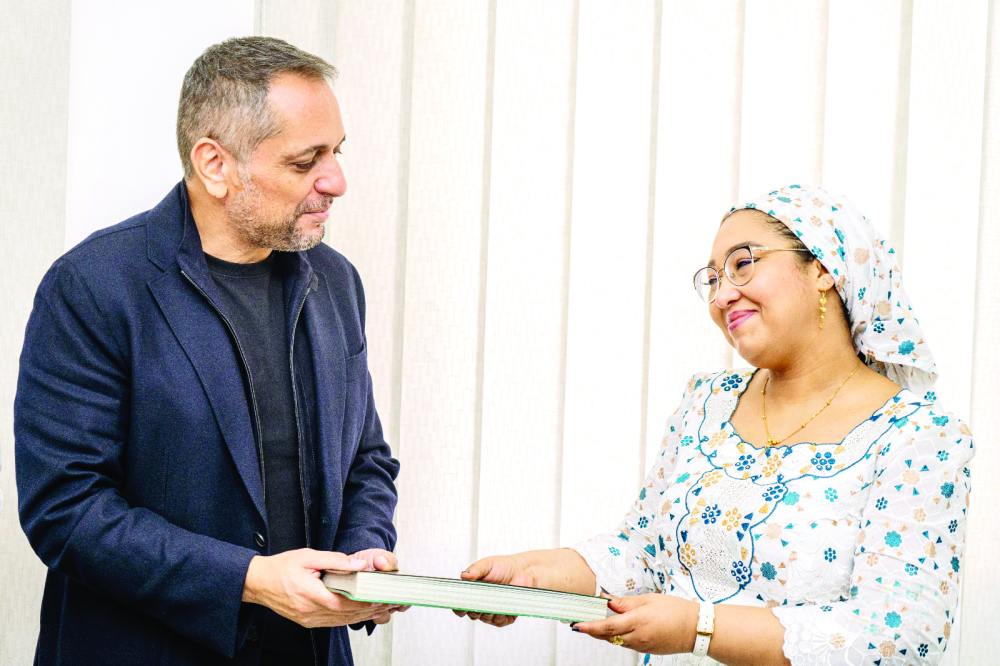

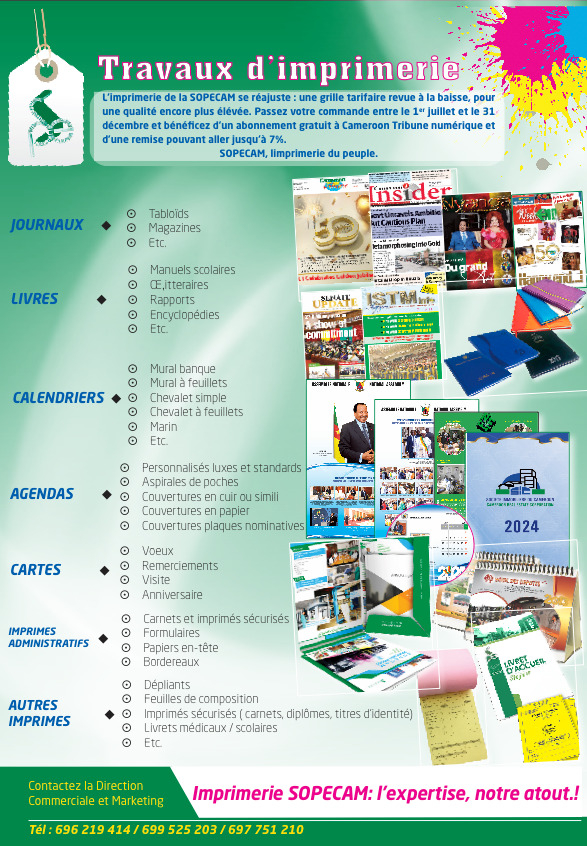
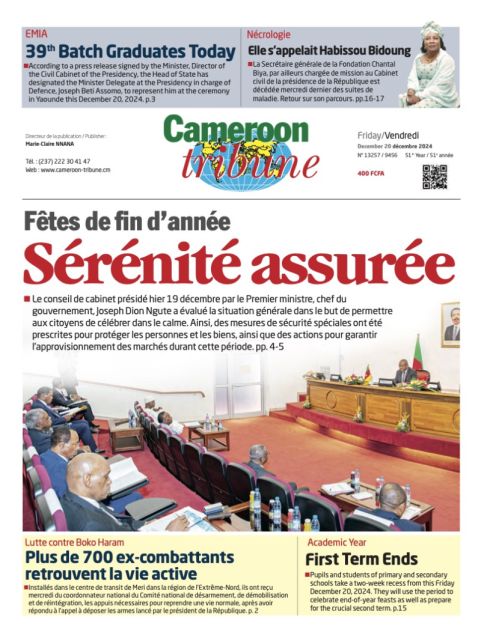




Commentaires